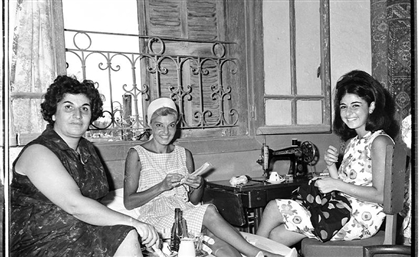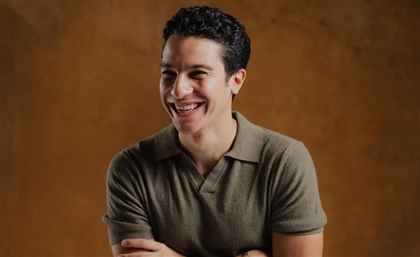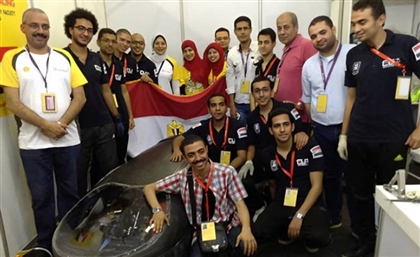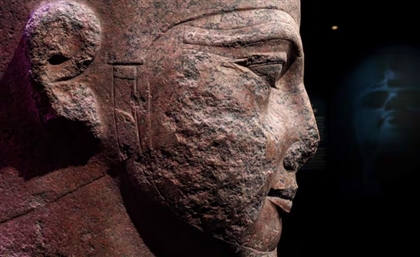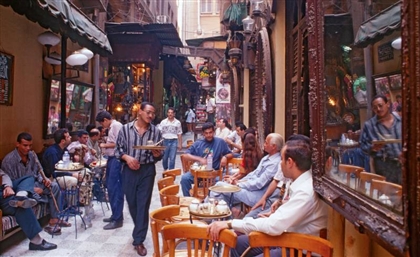Cairo Meets the West End
Check out our exclusive chat with the Egyptian theatre group, El-Alfy Theatre, showcasing the best of the country's talent on the London stage. We talk arts, culture and politics, as well as the challenges faced by the theatre community in Egypt.
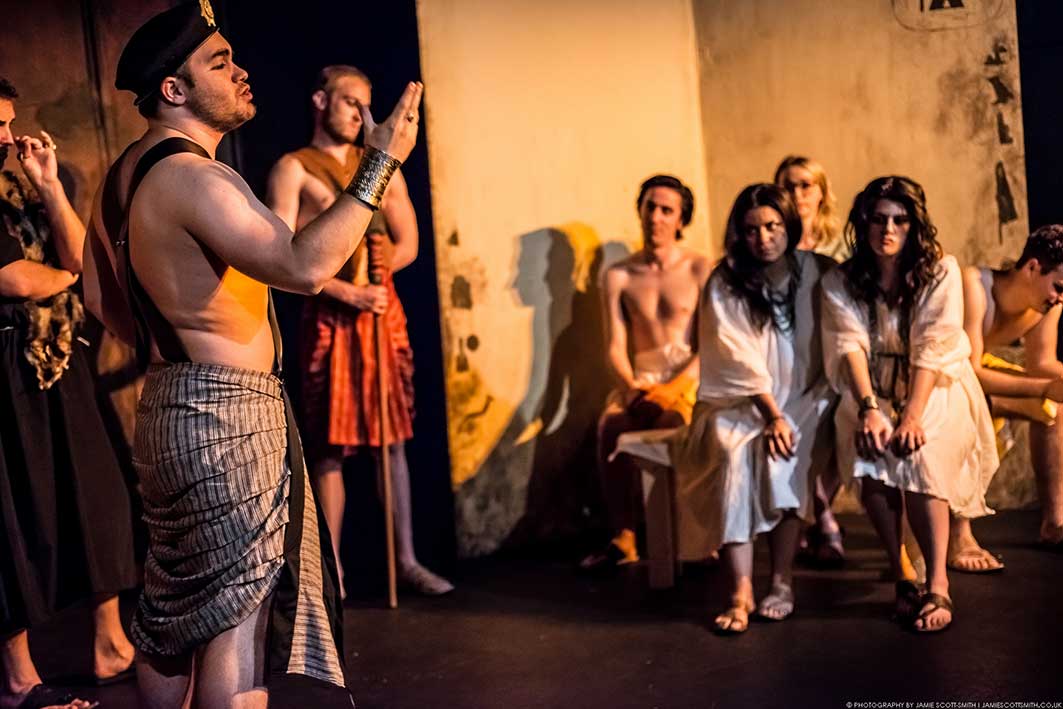
Meet the Egyptian theatre group hoping to showcase the best of the country's talent on the London stage. The El-Alfy Theatre company was formed by a third culture kid on a mission to take the quirky side of Egyptian culture to a global audience. The group has so far pushed boundaries across the spectrum and challenged wrongly-held views about Egyptians and Egypt. CairoScene caught up with group's artistic director and founder, Ahmed El-Alfy, to find out about the hottest new theatre group taking London by storm and find out what really makes him tick.
What first inspired you to form the initiative?
It all started when I went to watch a play off the West End in London called Al Quds. It was by an English playwright directed by an Egyptian and all its cast were originally Arabs. I was initially very excited to see it however, I didn’t feel it truly reflected our culture. Though it was enjoyable to watch, I felt the audience were a bit alienated and were not involved. They always look at foreign plays from an outside perspective and we thought how about we involve the British actors and audience a bit more? That way we make the foreign plays more accessible to them.
At that time I was was doing my masters in London, in Theatre Directing and I was still considering a topic of my dissertation. So I thought on focusing on the topic of "Contemporary Arabic Theatre and British Audience: A wide gap that can’t be bridged.” So ironically, it started as a gloomy outlook that Arabic Theatre can not be staged in England even if it was translated. However, during my research, I went to Egypt to The AUC Library to source some Arabic plays that are currently translated into English to use as examples. I came across this translated English book of four plays called The Arab Oedipus. I was very intrigued to find such a book and I started reading it. Two of them I liked. One by the prominant playwright Tawfik Al Hakim which was still in the tragedy line. And the other one was The Comedy of Oedipus by Ali Salem. The title really intrigued me so much as the story of Oedipus is far from comedy. While I was reading, I was literally laughing out loud. It was written in a very creative way that I don’t think a British audience would know that Egyptians do have some talented playwrights. So I decided to leave this play aside and not use it in my dissertation hoping to direct it one day. And my next adventure was try to find the original Arabic play, and I managed to find an old dusty version at Madbouly in downtown Cairo.
After I finished my masters degree, I re-read the play again and took initiative to start the journey which is to prove to a British audience that Egyptians do have very talented playwrights. The play has got all the things that can catch British audience’s attention: It being an adaptation the story of Oedipus, set in Pharaonic Thebes, relevant to the current Egyptian political scene and a comedy. We had a four-week run with very positive reviews!
Do you have plans to take your London productions to Cairo?
It is definitely on our minds. Unfortunately we don’t think that The Comedy of Oedipus can be staged in Egypt, as all of Ali Salem’s work is banned from Egypt which is very ironic. We would have loved though to perform it in front of the Pyramids or even in Luxor since it is originally set in Ancient Egypt.
We are currently working on a translated play that we directed before in English, in London, called Gotcha by the English playwright Barrie Keeffe. We strongly feel its theme and story line is very relevant to Egypt now. With a bit of adaptation while translating it from English to Arabic, and adapting some of its cultural references, it will look as if it was written by an Egyptian and Egyptian audience will connect with it. It is a very social play talking about public schools in the UK, which can be very relevant to Egypt.

Do you feel that it is now more important than ever to promote Egypt's image abroad?
I think Egypt is full of talented people, however, very few get noticed outside it. Now we are seeing The Square documentary, Mohamed Salah joining Chelsea… etc. We are getting noticed. It is much better than always looking at Egypt negatively. So to answer your question, yes. We do feel it is the very right time. Ironically the performance of the The Comedy of Oedipus was in mid-June. So Egypt was a hot topic and was all over the news. And in the theatre's foyer, there was TV hanging and Egypt news pops up on a regular basis. And next to it is the poster of our play which was Tutankhamun, featured in Time Magazine, wearing sunglasses. And the flyers were made out of papyrus. And also the play was a political satire. So people were keen to watch it. And I hope it worked in creating a lovely image of Egyptians abroad.
How do you feel that the industry differs in London compared to Egypt?
Wow. I could write a book to answer this question! A massive difference unfortunately. The industry in London has got a structure. Much more organised. Massive competition so there's always those who strive to be better. London has a lot to offer in theatre. The minute you arrive at Heathrow airport, theatre posters are all over the place. They love theatre. They cherish theatre. They respect theatre. But unfortunately, in Egypt is not the case. Every time someone asks me in Egypt what I do, and I answer I am a Theatre Director, they immediately ask me “Why not film?” They treat theatre like a minority. However, the opposite happens in London. They give theatre its full respect.
The difference lies mainly between the theatre makers and the audience. Theatre makers in Egypt are structured as troupes or theatre groups, mainly devised and performed to a small sector of people. Either friends or families or some well cultured people, who are very rare. However in England, it is more like a tradition and more organised. There is the producer, there is the playwright, the Director, different actors are hired for each production and not because they are part of a troupe and have to be in every production. So there is variety. Of course there are the ensembles in London, but they are not the dominant majority.
Also in Egypt you find either plays that are very complicated and hard to understand for a normal audience, or commercial comedy plays that have no content whatsoever and just focusing on a star and actors trying to tell jokes. There is no middle. There is no play that is just a pure, good story that a normal person can watch as if he/she are watching a regular film or even a TV series. I feel theatre makers here need to think more of the audience and not just to fulfill their creative desires.
Another difference is in the casting. In London if I ever want to cast a play, I put on a post to well known casting websites that include casting agencies and actors. Immediately, I get hundreds of responses from very well trained actors. But in Egypt, I struggle to find the talent. I know they are there. But they are not visible. You have to know someone who knows someone that recommends some actors. Or you cast your friends.
The Egyptian audience don’t go to the theatre anymore. Let’s admit it. Yes some minor productions happen and a very closed community go, but it is not accessible to the public. Funnily enough, theatre makers do complain that they struggle to find an audience. And on the other side, the audience complain that there is no good theatre to watch. I was watching a couple of weeks ago a play produced by the National Theatre house in Egypt at Al Talaae Theatre in Ataba. After the show is finished, I took a taxi to go home. The taxi driver asked me randomly what I was doing in the theatre. So I simply answered him I was watching a play. He was like, "A play? Seriously? Hahah I never knew people go to the theatre anymore!” So I politely replied “There is, trust me, but unfortunately it is not accessible.” So I asked him if he's ever been to a play and he said “ I used to go regularly with my madame in the 70s and early 80s. But theatre started to be too airy and now it is non-existent. If there is something good I can bring my wife and kids to, I will definitely go." So the theatre scene exists in Egypt. But it is not accessible.
How do you think theatre can bring about political change?
Theatre is an immediate art. It is so powerful in delivering any message or connecting with people directly. Films are watched on a screen. Actors are not physically there. But with theatre, it is like having a live, 3D experience. So when used in making political statements or awareness (as long as they are openly perceived and not censored like in Egypt, of course), then it can make a big change in people’s lives. Theatre can act as a tool of political awareness. And since January 25, there has been a lot of political theatre out there. It is commonly used abroad, as well not just in Egypt. Look at the Germany's Brecht, for example. He was very political. And his plays have marked on people’s lives and are considered as timeless. They are performed in all languages and still relevant.
Theatre is the voice of the people. It reflects the true reality of our society. Government officials in Europe in the past used to watch plays to see what the public is interested in. So if theatre makers do keep making political, theatre that reflects people’s concerns, I do encourage government officials to watch plays as well. It will reflect a better communication between the government and its people. At least it is a medium.

Do you believe that the present climate presents challenges for the theatre/arts industry in Egypt at present?
Absolutely. It is hard times. For some reason, people are now interested in politics. Talking about politics all the time. No one is thinking of anything else. Films even are affected. Cinemas are struggling to attract audiences. Even I saw TV coverage on the current book fair. The guy from Sour Al Azbakeya was complaining that people don’t go. They were interested in short stories and drama in general, but now all what they want to buy is political books.
On another front, people in the arts industry don’t feel safe. Egypt now is subject to unexpected riots and explosions and that can definitely lead to less people going out of their homes to watch a play or a movie. I even experienced it myself. I was heading to watch a play that was staged a few days ago called Taxi in downtown. I was really looking forward to it. But due to the closure of Tahrir Square and the explosions that happened during the anniversary of 25th of January, I didn’t feel safe to go to be honest. I am positive, though. I do feel it is a period that will end. I encourage theatre makers and artists to start driving the focus of the people from politics to something else. It is very possible but will take its time.
Who do you most admire on the international theatre scene?
There are a lot of theatre makers that do inspire me as an artist. One of them is English playwright Dennis Kelly who adapted the book of Matilda to a musical in the West End and it won seven Olivier awards. He also was the main reason of me going into theatre. I directed one of his plays, Orphans, in Hong Kong and I invited him to watch it while he was in London. He flew for one night all the way to Hong Kong to watch it. And he advised me to pursue theatre as a career and I personally consider him as my mentor. I do also admire the British Director Mike Leigh. His plays are so humane, very gripping, and makes you sit at the edge of your seat. Another one is British Director Rupert Goold. He inspires me with his boldness and his ability to conceptualise plays that are very provocative that trigger audience’s feelings. At the same time very entertaining and visual. I flew to Australia one night once to see a production he did as part of Sydney’s Arts Festival. Outside of British directors, I adore American playwright David Mamet with his powerful dialogue and his amazing skills of story-telling. And of course one can’t forget the classics: Brecht, Harold Pinter, Checkhov, and Ibsen.
Why take Egyptian theatre to London as opposed to nurturing the scene back home?
We are trying to do both. That’s why we just started our activities in Egypt hoping to create a public theatre awareness and make people appreciate it as they used. In the 60s and 70s it was the golden of age in Egypt. Theatres were packed. And we hope to bring that back. As mentioned earlier, the current political situation is making it slightly hard for us. However, I don’t think that will be an obstacle for long.
At the moment, we are hunting for like minded theatre makers ranging from playwrights, actors, designers..etc to be working with us in our coming productions in Egypt. And we are having big plans to hopefully bring theatre back to life. Of course we can’t be doing this on our own. So we are as well contacting other theatre companies and encouraging them to do more plays. And we will include them in our awareness campaigns. So we do invite all theatre makers out there to collaborate with us and get in touch to reach the big goal. The media has got a big role as well in helping us to nurture the scene too. We need every support from the media to cover the productions in Egypt for people to know about. If one wants to see a show, it is either you know about it through a friend or on a Facebook event. My dream is to have the current Theatre productions listed in local magazines for people to check regularly. And we thank CairoScene for covering our activities and encouraging the theatre scene in Egypt.
Find out more about El-Alfy Theatre here: http://www.elalfytheatre.com/
- Previous Article Mawawil @ CJC
- Next Article Nomades Land




